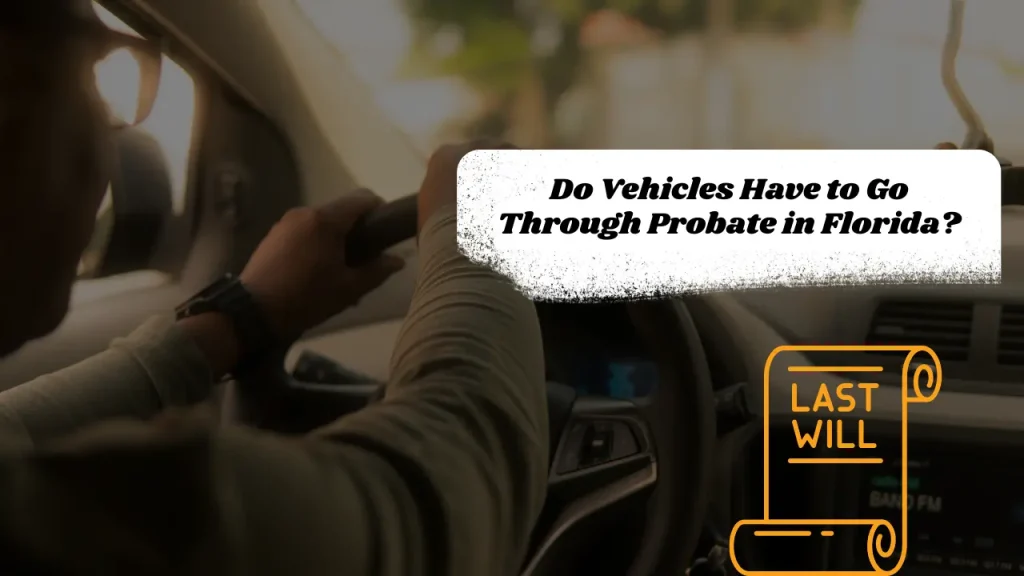Do Vehicles Have to Go Through Probate in Florida?
What Happens to a Vehicle When the Owner Passes Away in Florida?
Losing a loved one is already difficult, and dealing with their belongings—especially vehicles—can add to the stress. If you’re wondering, “Do vehicles have to go through probate in Florida?” you’re not alone. Many Florida residents want to know how to transfer a car title after death without probate or whether probate is necessary at all. The answer depends on various factors, including ownership structure, legal designations, and applicable exemptions. Understanding these factors can help streamline the process and avoid unnecessary legal hurdles.
Understanding Probate and Vehicle Ownership in Florida
Probate is the legal process through which a deceased person’s assets are distributed to heirs and beneficiaries. In Florida, vehicles may or may not be subject to probate, depending on specific circumstances.
Exempt Vehicles in Florida
Florida law allows certain vehicles to bypass probate under the exempt property rule. According to Florida Statutes §732.402, up to two motor vehicles may be classified as exempt if they meet the following conditions:
- They were owned by the deceased at the time of death.
- They have a gross vehicle weight of 15,000 pounds or less.
- They were regularly used by the deceased or immediate family members for personal purposes.
- The vehicles are inherited by the surviving spouse or children.
If the vehicle qualifies as exempt property, the beneficiaries can file a petition for determination of exempt property, allowing ownership transfer without formal probate.
When Vehicles Must Go Through Probate
If a vehicle does not qualify as exempt property, it typically must go through probate. This may apply in the following cases:
- The deceased owned more than two vehicles.
- The vehicle exceeded the weight limit or was not used for personal purposes.
- There are disputes regarding ownership.
- The vehicle was solely in the deceased’s name without a designated beneficiary.
In such cases, the probate court determines the rightful owner and facilitates the transfer process.
Related article for you:
How to Become a Probate Referee in California? Step-by-Step Guide

How to Avoid Probate for a Vehicle in Florida
If you’re looking for ways to transfer vehicle ownership after death without probate in Florida, consider these options:
1. Joint Ownership with Rights of Survivorship
If the vehicle is titled in two names with “or” or “Joint Tenancy with Right of Survivorship (JTWROS),” it will automatically pass to the surviving owner upon the other owner’s death, bypassing probate.
2. Transfer-on-Death (TOD) Designation
Florida allows a Transfer-on-Death (TOD) designation, which enables the vehicle to pass directly to a named beneficiary upon the owner’s death. This eliminates the need for probate and ensures a smooth ownership transfer.
3. Living Trust
Placing the vehicle in a revocable living trust allows it to be transferred seamlessly to the designated beneficiaries without probate. The vehicle remains in the trust owner’s control during their lifetime and passes to heirs upon death.
4. Beneficiary Designation with the Florida DMV
In some cases, vehicle owners can add a beneficiary to their Certificate of Title through the Florida Department of Highway Safety and Motor Vehicles (FLHSMV), ensuring direct ownership transfer without probate.
Steps to Transfer a Vehicle Without Probate in Florida
If the vehicle qualifies for an exemption or another non-probate transfer method, follow these steps:
- Obtain a certified death certificate.
- Complete a Title Transfer Application (HSMV 82040) from the Florida DMV. You can download this form from the official FLHSMV website: HSMV 82040 Form.
- Provide proof of relationship (e.g., marriage certificate for a spouse).
- Submit required documents to the local DMV office.
- Pay any applicable title transfer fees.
For additional details, visit the Florida Department of Highway Safety and Motor Vehicles (FLHSMV) website: FLHSMV Official Site.
What Happens if a Vehicle Goes Through Probate?
If probate is necessary, the vehicle will be included in the decedent’s estate inventory. The personal representative (executor) will:
- File for probate and notify the DMV.
- Pay any outstanding debts on the vehicle.
- Obtain a court order allowing transfer or sale.
- Distribute the vehicle or proceeds to beneficiaries.
Common Questions About Vehicle Probate in Florida
How Long Does It Take to Transfer a Vehicle After Death in Florida?
The timeline depends on whether the vehicle must go through probate. If probate is required, it could take months to a year. If an exemption applies, the process can be completed in a few weeks.
Can I Sell a Deceased Person’s Car Before Probate Is Completed?
No, unless the vehicle is exempt or properly designated with a transfer-on-death title. Otherwise, you must wait for probate to finalize.
Do I Need a Lawyer to Transfer a Vehicle Without Probate in Florida?
While not always required, consulting a probate attorney can ensure compliance with Florida estate laws and prevent delays.
Key Takeaways
- Exempt vehicles can bypass probate under Florida law.
- Non-exempt vehicles must go through probate unless alternative ownership structures are in place.
- Methods to avoid probate include joint ownership, TOD designations, and living trusts.
- Legal guidance is recommended to ensure proper compliance with Florida estate laws.
By proactively planning for vehicle ownership transfer, Florida residents can simplify the process for their loved ones and avoid probate delays. If you need assistance, consulting with a probate attorney can help ensure a smooth transition of assets.
About the Author

Sarah Klein, JD, is an experienced estate planning attorney who has helped clients with wills, trusts, powers of attorney, and probate matters. At All About Lawyer, she simplifies complex estate laws so families can protect their assets, plan ahead, and avoid legal headaches during life’s most sensitive moments.
Read more about Sarah
